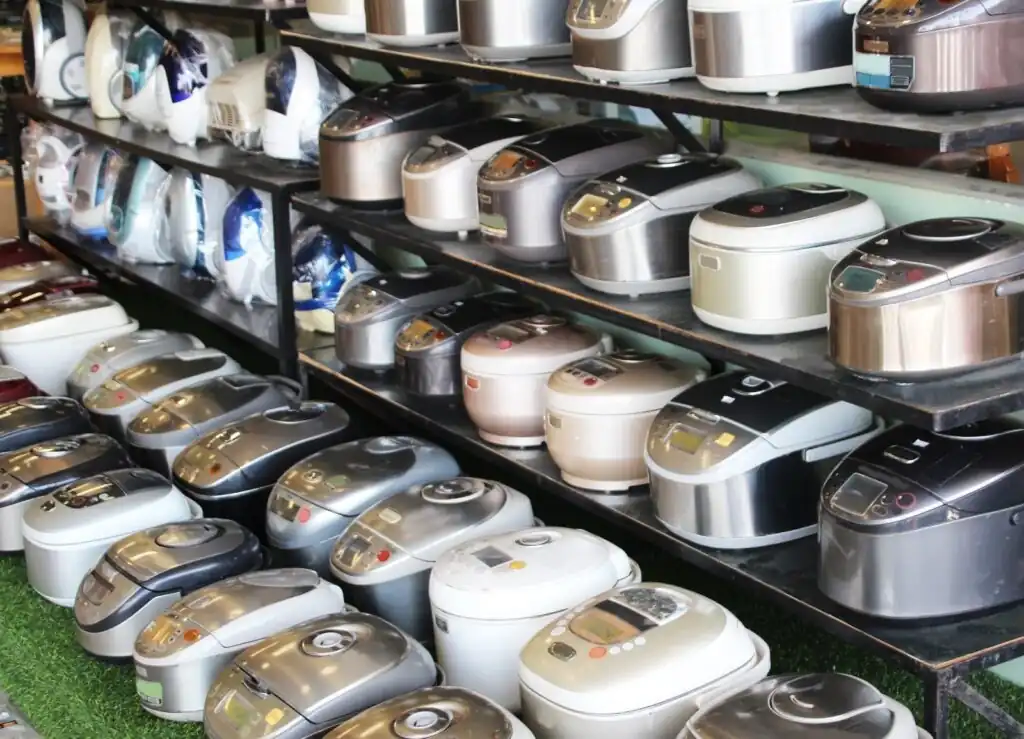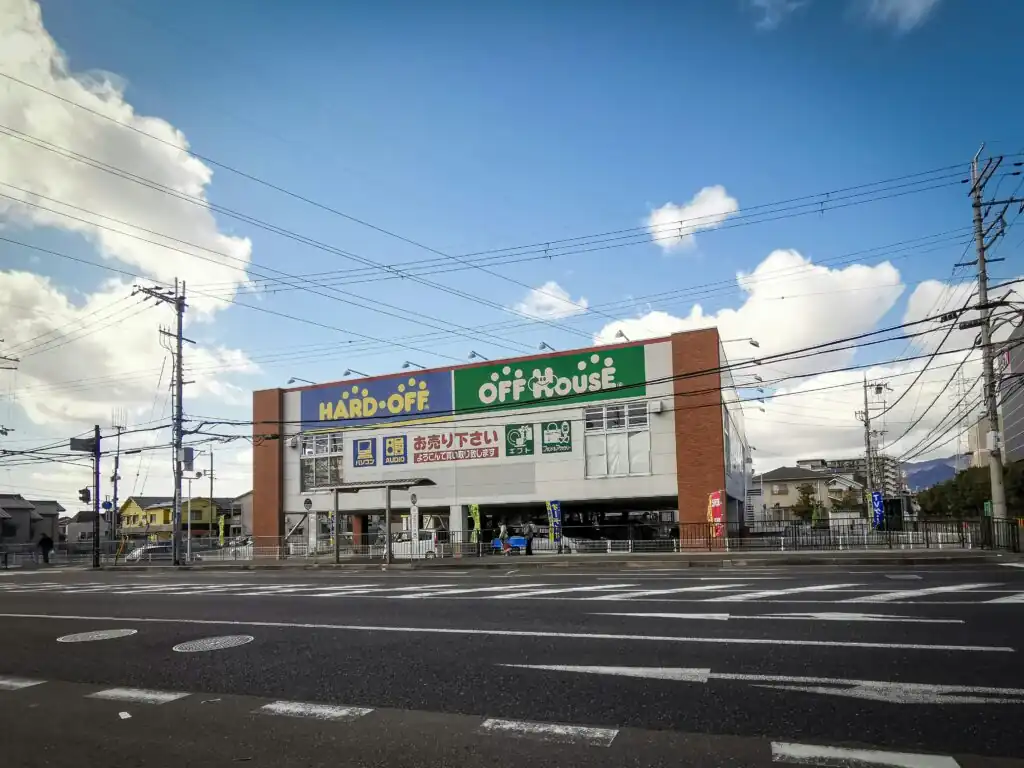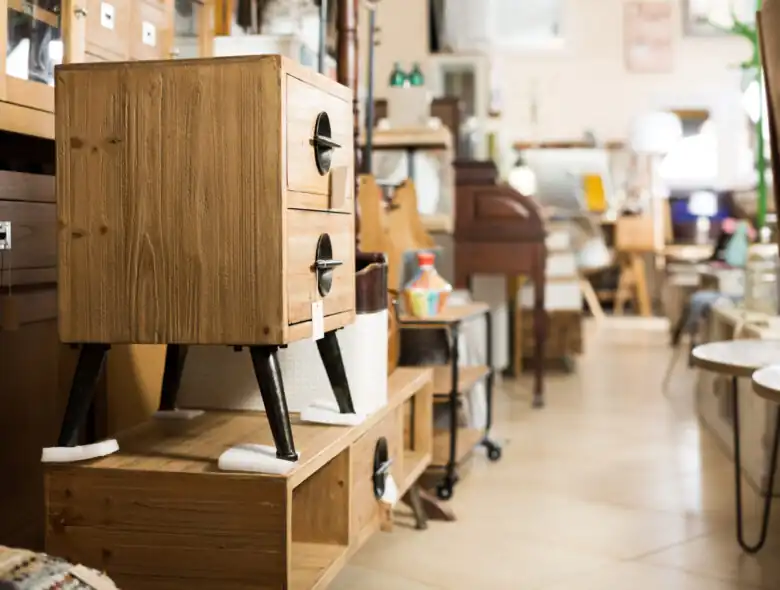Japan has gained a reputation for being a thrifter’s haven due to its secondhand shops and thrift stores stocking items that are still in shockingly good condition. A reason for this is due to the difficulty and complexity of throwing out unwanted household goods and appliances, clothes, gadgets, and basically anything that can’t be sorted into combustible trash, non-combustible trash, and so on. For oversized items, disposing of them requires a fee, which can start to add up if you’ve got lots of things you need to get rid of.
As a result, one person’s trash really is another person’s treasure because there is no short supply of quality secondhand goods that one can get their hands on in Japan, especially if you’re looking to furnish and decorate your new home on a budget. (If you’re also looking for a place to live that’s not going to break the bank, then why not give Village House a go? They’re a real estate organization with over 1,000 properties across Japan’s 47 prefectures to suit a variety of different budgets and tenants.)
Recycle Store

Recycle stores are what Japan calls secondhand shops and more often than not, when you move into a new neighborhood, you’ll find at least one local recycle shop that caters to the area.
Japan’s secondhand market has seen a steady increase throughout the years and as of 2022, there were approximately 483,000 secondhand shops scattered across the island. Some well-known and popular recycling shop chains include:
- Hard Off stores – they have around 914 shops across Japan’s 47 prefectures
- 2nd Street – Japan’s second most popular secondhand shop chain with over 800 stores across the island and an online store
- Treasure Factory – a secondhand store chain with over 100 locations in 11 prefectures
There is also a secondhand store chain, King Family if you live in less urban prefectures such as Saitama, Fukui, and Chiba.
International students, fresh graduates, and lower-income families are just some of the customers that recycle shops see come and go as they offer items for between 50% to 70% of the original cost depending on what you’re looking to purchase. Many recycle shops also host seasonal sales where you can bag a good deal as some items may be purchasable for as little as 30% to 40% of their original cost.
If you’re someone looking to furnish and decorate your home but are restrained by a tight budget, recycle shops are the way to go. Combine this with picking up some necessities and supplies at one of Japan’s numerous 100 yen shops, and you’ll be able to stay well within your budget if you shop smart.
Hard Off and Off House

The “Off” stores are arguably the most popular chain of secondhand shops in Japan and the most numerous with almost 1,000 stores across the country’s 47 prefectures.
The company started as a new audio retailer called “Sound Hokuetsu” in 1972 but shifted its focus to the reuse and recycle business in a bid to aid the movement towards a more sustainable recycling-oriented society.
The “Off” Group is divided into different types of secondhand shops, and you can usually glean what the shop specializes in based on the name:
- Book Off – selling and buying secondhand books, magazines, DVDs, CDs, and games
- Hard Off and Off House – selling and buying furniture, household and kitchen appliances, kitchen items such as utensils and crockery, etc. Hard Off also sells musical instruments and bits and bobs from gadgets and computers, so if you need a specific piece of outdated hardware for that old PC you just can’t part with, this would be the place to go
- Mode Off – selling and buying secondhand clothes, bags, and shoes
- Hobby Off – for all the hobbyists and geeks out there looking for a cheap, possibly discontinued gaming console (GameBoy anyone?), or a reasonably priced camera or phone
- Liquor Off – the rarest of the Off Group, this shop buys unwanted bottles of liquor and sells them to someone who does
The Off Group also has an online store, so if you prefer to do your shopping that way, they’ve got you covered.
Treasure Factory
Treasure Factory was established in May 1995 by President and CEO, Eigo Nosaka. They currently have over 100 stores that operate out of 11 prefectures in Japan, including Tokyo, Saitama, Kanagawa, and Chiba. What sets them apart from the other recycle shop chains in Japan is that they’ve expanded their operations overseas and have branches in Thailand and Taiwan!
This chain sells and buys just about anything and some of its product categories include:
- Furniture (beds, chairs, computer desks, dining room sets, etc.)
- Household appliances (white goods, vacuum cleaners, clocks, etc.)
- Digital home appliances (TVs, audio systems, security cameras, etc.)
- Kitchen goods and supplies (Japanese and Western tableware, cooking utensils, etc.)
They also have an online store for ease of shopping.
C2C (Customer to Customer)

Perhaps unsurprisingly, online marketplace services and apps are fast becoming the go-to place for a good bargain, especially if you’ve got the patience and negotiating skills. In Japan, the most popular community-powered e-commerce company for selling and buying secondhand goods is Mercari.
Founded in July 2013 by Japanese entrepreneur, Shintaro Yamada, Mercari surpassed Yahoo! Auctions to become the most popular flea market application in Japan as of 2021, with over 72% of residents in Japan saying they’ve downloaded and used the app at least once.
The e-commerce company expanded into the U.S. market in 2014 and the U.K. market in 2016 and its app currently has been downloaded over 100 million times worldwide as of December 2017.
Yahoo! Japan Flea Market is another popular online marketplace where individuals can buy and sell new and used items. This is a popular place to hunt not just for a good bargain but also to find rare items that can be difficult to find elsewhere.
Craigslist, an American company that operates a classified advertisements website, is also another popular option, especially among the expat community in Japan. Founded by Craig Newmark in 1995, users can find anything from furniture to white goods to bicycles and cars. Just be aware of scammers and make sure to meet in person for the transaction to avoid any mishaps.
Sayonara Sale
Literally translating to “goodbye sale”, this is when non-Japanese residents of Japan who are leaving the country throw a sort of garage sale in an attempt to empty their apartment or house of items they no longer want or need. Due to the fact that disposing of oversized items such as furniture and household appliances in Japan is time-consuming, inconvenient, and requires a removal fee, sayonara sales are a fantastic option if you’re on a tight budget because oftentimes, those hosting these sales are looking to sell off their items as quickly as possible. This means that you can find great deals on furniture, and household and kitchen appliances for very cheap (or even free!). You can find listings for sayonara sales on Facebook groups, and the “For Sale” section of Craigslist.
Related articles:
- Spring Home Decor Ideas
- How to Save Money on Big Household Appliances
- Eco-Friendly Shopping in Japan
- How to Add Color to Rental Apartments
- What are the Basics of Creating a Beautiful Room? Top 5 Tips!

Freelance writer with over 2 years of experience writing for the Village House Blog, ESL teacher, and digital nomad who has lived in countries including The Czech Republic, The UK, The U.A.E., Japan, and most recently, Georgia. Is constantly on the hunt for the best, most optimal apartment for remote work when not enjoying going to film festivals, concerts, and the theater.



